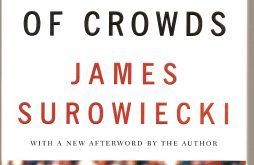from Lars Syll Distinguished social psychologist Richard E. Nisbett has a somewhat atypical aversion to multiple regression analysis. In his Intelligence and How to Get It (Norton 2011) he writes: Researchers often determine the individual’s contemporary IQ or IQ earlier in life, socioeconomic status of the family of origin, living circumstances when the individual was a child, number of siblings, whether the family had a library card, educational attainment of the individual, and other...
Read More »Debt and taxes
from David Ruccio As federal deficits and debt grow, they end up receiving, not paying for, a larger and larger share of federal expenditures. Tax cuts and spending increases enacted by Republicans over the past four months will lead to wider than previously expected budget deficits, according to the Congressional Budget Office. The federal budget deficit would total $804 billion this year, 43 percent higher than it had projected last summer, and exceed $1 trillion a year starting in...
Read More »A typology of uncertainties
from J.-C. Spender There is some heavy stuff in this section – but we cannot get beyond today’s literature on managing as rational decision-making and connect with managers’ practice without engaging uncertainty. All attempts to define uncertainty must fail – by definition, for to define is to take as certain, axiomatic. Those who see uncertainty in terms of probability stand on the certainty of population statistics. Knight saw such modified certainty as ‘risk’. Yes, risk management is...
Read More »Dysfunctionalism in US economic departments and business schools
from John Locke The problem, however, is not the failure of economic departments and business schools to create a prescriptive science, but the refusal of nomothetic neoclassical economists and mathematical modelers in them to admit the failure, and their actions after they gained a monopoly of the sinews of institutional power, that produced dysfunctionality in Anglo American higher education. That dysfunctionalism is expressed in their constant battle with people in academia who realize...
Read More »The relationship of the real investment led economy perspective to existing views
from Michael Joffe This perspective contrasts with standard neoclassical theory in several respects. That theory puts forward models relating to the decision making of (potential) workers, and of firms – respectively the supply of and the demand for labor. Workers choose whether or not to accept employment, based on a comparison of the offered wage with their reservation wage. Firms’ decision making is seen as a comparison between employing one more or one fewer worker with the difference...
Read More »Game theory, Larry Samuelson and one of the most widespread myths in economics
from Bernard Guerrien One of the most widespread myths in economics, but also in sociology and political science, is that game theory provides “tools” that can help solve concrete problems in these branches – especially in economics. Introductory and advanced textbooks thus often speak of the “applications” of game theory that are being made, giving the impression that they are revolutionizing the social sciences. But, looking more closely, we see that the few examples given concern...
Read More »Modeling economic risk
from Lars Syll Model builders face a constant temptation to make things more complicated than necessary because this makes them appear more capable than they really are. Remember that a model is not the truth. It is a lie to help you get your point across. And in the case of modeling economic risk, your model is a lie about others, who are probably lying themselves. And what’s worse than a simple lie? A complicated lie.
Read More »The wisdom of crowds
from Lars Syll A classic demonstration of group intelligence is the jelly-beans-in-the-jar experiment, in which invariably the group’s estimate is superior to the vast majority of the individual guesses. When finance professor Jack Treynor ran the experiment in his class with a jar that held 850 beans, the group estimate was 871. Only one of the fifty-six people in the class made a better guess. There are two lessons to draw from these experiments. First, in most of them the members of...
Read More »C’mon, M’Honey, URINE THE MONEY! (you’ve got a lot of what it takes to get along.)
The REAL Trump pee-tape was a urine sampling pyramid scheme. “Whatever happened to Trump neckties?” asks Zane Anthony, Kathryn Sanders and David A. Fahrenthold at the Washington Post, “They’re over. So is most of Trump’s merchandising empire.” Among the products that Trump lent his name to, for a fee, was a vitamin supplement, supposedly custom formulated based on the results of a urine test: “Take a snapshot of the most critical metabolic markers in...
Read More »Ryan, deficits and hypocrisy
from Peter Radford Paul Ryan is leaving Congress. Before he had finished announcing his upcoming retirement the airwaves were awash with commentary about his legacy. Count me as one of those who have a particularly strong perspective on this. Paul Ryan was, and presumably still is, a supremely hypocritical human being. Recall how he sprang into public consciousness. He quickly established himself as a severe right winger, but one with the smarts to back it all up. He promoted himself as a...
Read More » Heterodox
Heterodox




